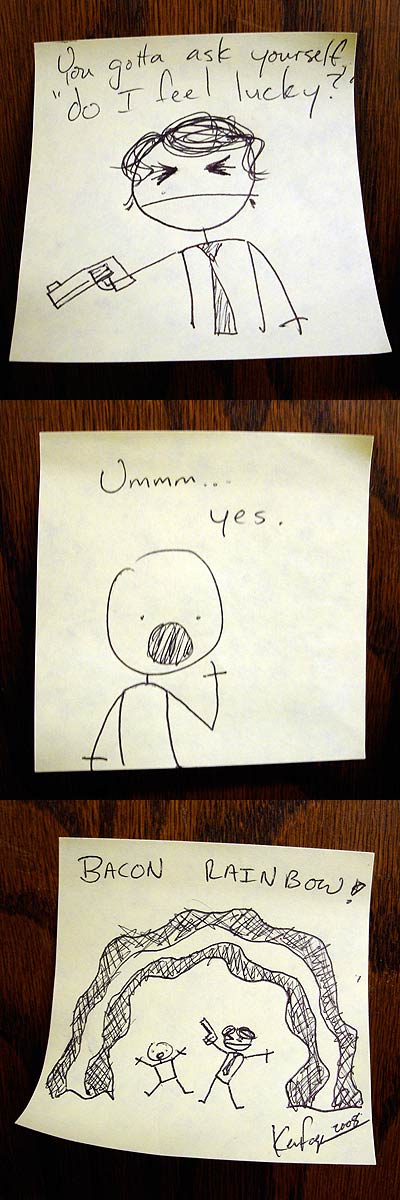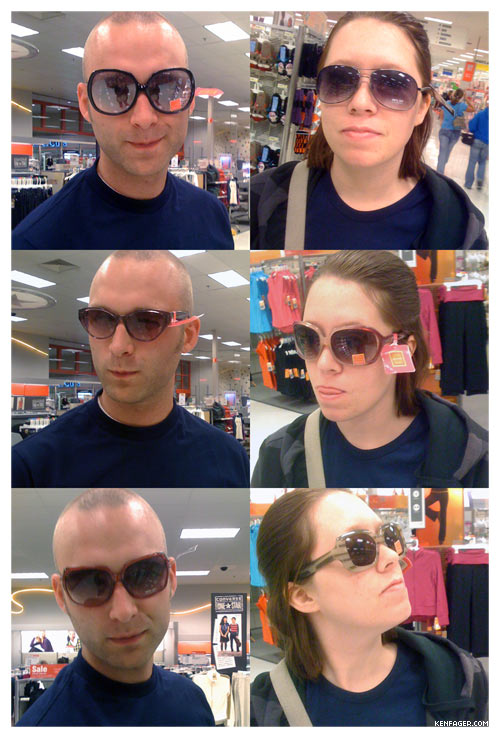Nouns are the words for persons, places, things, or abstract qualities.
In English we capitalize personal names because in America we like to raise kids to think “everyone is special in their own way.” You aren’t. Everyone has a capital letter in front of their name. You are not special. You are not a beautiful and unique snowflake. The word “I” is always going to be capitalized too.
Names of official places, offices, and points of location are also capitalized. New York, Wisconsin, Honolulu, Lake Titicaca, Fire Department, Triangle City Square, Wal-Mart Avenue, and Dave’s Discount Urologist Megamart/Payday Loans. Got it? Super.
So are formal titles like our last unquestionably and legitimately elected Commander in Chief, President Clinton. As far as I’m concerned Mr. Bush is about all the respect the current guy holding the office deserves. When Senator Obama is elected we will refer to him as President Obama. If Senator McCain is elected I will seek asylum in Germany.
Writing the noun for another foreign language needs to be capitalized. English, German, Spanish, Russian, Chinese, Newspeak, etcetera ad nauseum until English is the only language left due to globalization.
All other things and abstract qualities that make up the rest of all nouns are not capitalized. Unless it appears as the first word in a sentence, then “noun” isn’t even capitalized. English is cruel and confusing like that.
So what makes German nouns, or Übernomen as I like to call them, superior to English nouns in every way?
In German a Nomen (noun) is always capitalized (notice how I capitalized Nomen earlier in the sentence. Awesome.). Capitalize just the first letter though. Otherwise you run the risk of being one of those ANNOYING PEOPLE WHO FALL ASLEEP ON THE CAPS-LOCK KEY when you write. German words for people, places, things, and abstract qualities all are capitalized no matter where they appear in a sentence. A Nomen is easier to spot in German than in English because 99% of the time it is going to be capitalized. The remaining 1% are reserved for Apple products like the iMac, iPod, iPhone et al.
Let’s take a look at some Nomen in this sentence. Grab a Sharpie marker and circle the Nomen on your computer screen.
Günther Rockmysocksoffenstein (name) besuchte Berlin (place) mit seiner Gitarre (thing) und Schwanken (abstract and questionable translation to follow).
Günther Rockmysocksoffenstein (name) visited Berlin (place) with his Guitar (thing) and swagger (abstract).
German also has a peculiar rule when it comes to nouns. If you are a boy read Boy Paragraph A, if you are a girl read Girl Paragraph B.
Boy Paragraph A:
Remember when you were a young boy and you would mash two toy cars together simulating a horrible accident? Well imagine that each car is a noun. Now mash the two noun-cars together. Walla! The horrible pile of shorn metal you’ve smashed is now one whole new noun – a.k.a. compound noun.
Girl Paragraph B:
Remember when you were a young girl and you would put your Barbie dolls on top of each other pretending they were kissing? Well imagine that Barbie and Ken each symbolized a noun. Now mash their lips together and wait nine months. The love-child-noun that Barbie and Ken created is a new word entirely – a.k.a. compound noun.
A compound noun is two German Nomen mashed together. It is theoretically possible to mash as many coherent nouns together to adequately describe the intricate details of a person, place, thing, or abstract quality.
One such legitimate example would be: Donaudampfshiffahrtsgesellschaftskapitaenskajuetenschluesseloch
This would roughly translate to: The keyhole of the door of the cabin of the captain of a steamship
company operating on the Danube
The primary piece of advice Douglas Adam’s Hitchhiker’s Guide to the Galaxy gives us is “don’t panic.” This is meaningful advice in this scenario as most German compound nouns are not that long. Most are a logical combination of just two or three words.
Try to guess what you get when you combine the German word for “main” and “city” together. Haupt + Stadt = Haupstadt or capital city. Let’s try it with three words crammed into one. Take the German words for “arm” and “band” along with “clock.” Arm + Band + Uhr = Armbanduhr or wristwatch. You can see in Hauptstadt and Armbanduhr that only the first letter is capitalized. This is true for all compound nouns. Writing HauptStadt and ArmBandUhr would be incorrect.
Be aware that compacting words together and guessing at their logical meaning is not always so easy. One of my favorite Nomen has no real definitive English translation. That word is Schadenfreude. As a compound noun Schadenfreude is comprised of the words for “to harm/do damage” and “joy/happiness.” Schaden + Freude = Schadenfreude or “the enjoyment of another’s pain or suffering.” Why do you laugh when you see a home video of someone getting hit in a sensitive area during ABC’s primetime TV programming? It is a bit of an abstract concept, but that is what Schadenfreude is. You laugh because someone else got hurt.
Example:
Ich sah in dem Fernseher Bob Sagets Hoden geschlagen und fühlte Schadenfreude.
I saw Bob Saget’s manbits get clubbed on TV and it made me feel (a guilty kind of) happy.
Perpetual capitalization and the intimidation factor presented by compound nouns are why German nouns are superior to English nouns in every way fathomable. If you think that’s the end of it, you would be wrong. There is even more to the Übernomen that I have not covered. Nomen have a feature that is absent in English, namely the assignment of one of four possible genders. That, my friends, will have to wait for another day. I just blew your minds and you’ll need some time to clean the itty bits of brain from the inside of your skull.
Addendum: Nomen is not to be confused with the club NoMen on 19th and Harrison Avenue down by the docks. I totally made a fool of myself trying to pick up chicks there once. The dance music was really good though.
Corrections and suggestions are welcome via the comments.






